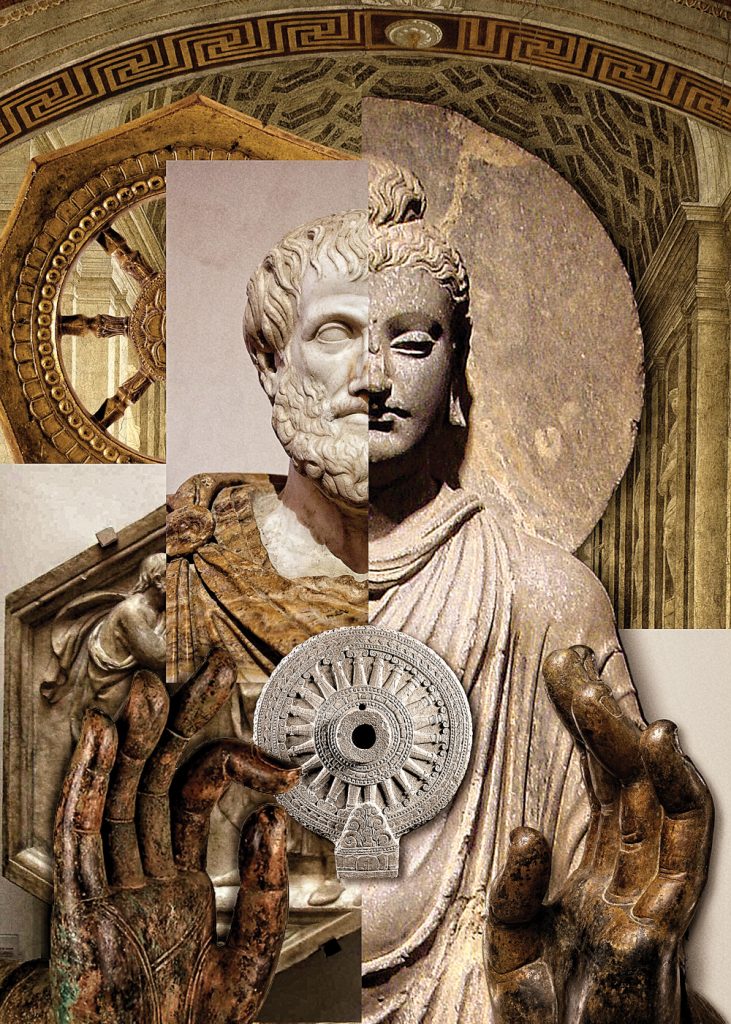The world’s problems are immense, perhaps endless. The choice we are given as practitioners is how to respond to this immenseness. Do we channel a compassionate bodhisattva? Do we cultivate lovingkindness, generosity, and patience and do our best to live a good life? Or do we commit to a vision or task that we feel or believe can make a real difference in our corner of the world?
The House We Live In: Virtue, Wisdom, and Pluralism
By Seth Zuiho Segall
Equinox Publishing, 2023, 200 pp., $22.95, paper
When we start out as Buddhists, it is good to have clear, straightforward guidelines on what is right or wrong and how we should live. But as our practice matures, so should our understanding of morality. At some point, we may ask ourselves whether our Buddhist idea of ethics is sufficient for understanding how you and I should live our lives. You may engage other thinkers, alive or dead, for a more expanded vision of not just how you should live but also how we all might do so to ensure greater flourishing.
Seth Segall does precisely this in his new book, The House We Live In. If we were to give a subheading to the book, it might be “The challenges of ethics in today’s America and a possible way forward.” Segall attempts to help America navigate its current cultural climate of polarization by constructing a convincing argument for the renewal of virtue ethics, drawing on Aristotle, the Buddha, and Confucius, as well as more recent Western thinkers.
Human flourishing takes center stage in his thesis. In Segall’s own words: “This book is an attempt to clarify the relationship between virtue, wisdom, and flourishing—to define flourishing in terms of the virtues and wisdom that make it possible and the domains in which it might be expressed—and apply this understanding to the problems of living in contemporary pluralistic, multicultural, and increasingly secular societies.”
This book is meant for the intelligent layperson and does not demand any special prior knowledge. It discusses many figures that are key to the history of philosophical ethics, from David Hume to Immanuel Kant, yet does not expect readers to have a background in philosophy. He does this to bring readers up to the current age with a solid basis for making sense of his project and the sort of historical challenges that these figures represent. You will certainly feel more informed about the wider world of ethics after reading it.
After a meaty introduction, Segall develops his ethical proposal across three sections: virtue, wisdom, and flourishing. The book stands out from similar offerings over the years for its well-informed overview of ethical challenges and its lucid connection between these three areas within the reality of the current American landscape. It does not shy away from discussing social justice, the culture wars, religious fundamentalism, and material greed.
The challenge is honoring diversity while finding common ground, and it is there that the challenge becomes clearer.
Segall champions virtue ethics over other ethical approaches, as it is most concerned with how we develop, grow, and mature as individuals within societies. Thankfully, he bridges the gap between the need for individuality and the need for a sense of collectiveness—one that surpasses identity politics and relocates citizens within a shared multicultural space. He is attempting to answer the question of how we all stay together while being so different. Not an easy challenge, but clearly an essential one.
In taking the path of virtue, Segall openly admits that he risks leaning into cultural relativism. Yet to him, there is no choice but to take a stance and adopt a position. The key is to construct one that is not rooted in blind faith in a received tradition but established through an ethical renewal that draws on a multiplicity of views that circle cross-cultural.
We could say that the project is actually not so ambitious after all. We simply need to hold to basic values and respect differences. Yet pluralism and multiculturalism also mean diversity in upbringing, in the beliefs inculcated, and, as Segall points out, in the values that are cultivated. What is obvious to one person or one group may be odd or absurd to another. The challenge is honoring diversity while finding common ground, and it is there that the challenge becomes clearer.
Conflicts can emerge not necessarily from what is seen as good and right at a very basic level but from the priority we should give to values and the changes those priorities give to the actions and practices of groups. We can be deeply religious while placing coexistence and mutual flourishing alongside our religious beliefs as equals. Segall argues that it is exactly human flourishing that should determine what is preferable.
I guess what is left for us to decide is whether we agree with him. For those identified very strongly with selfish needs or highly conservative religious dogmas, this is unlikely to be the case. Segall is counting on enough of us sharing his conclusions and being willing to feed this vision of collective human flourishing as an antidote to the excess of opposing values currently having such a negative effect on not just America but also on many cultures globally. If you wish to be part of this project of cultivating a return to being together, then Segall’s book can certainly help you on your way while giving you a grounding in the bigger picture of ethical challenges our species has long faced. Your Buddhist practice can only be enhanced by doing so, and who knows, if we all take the first steps, perhaps more folks will wake up out of the hallucinations of our age and join us.
Thank you for subscribing to Tricycle! As a nonprofit, we depend on readers like you to keep Buddhist teachings and practices widely available.
